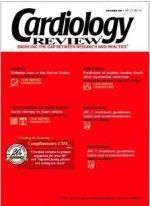Case report: Improved HDL cholesterol levels with niacin and statin therapy
A 50-year-old man with no previous history of cardiac disease had symptoms of atypical chest discomfort while exercising. He was receiving medical therapy for hypertension and had a family history of early heart disease. He did not smoke and did not have a history of diabetes mellitus. A stress test showed age-appropriate exercise tolerance with no inducible chest discomfort or electrocardiographic abnormalities. Results of myocardial perfusion testing by nuclear single-photon emission computed tomography were normal. A fasting lipid profile showed the following values: total cholesterol, 216 mg/dL; triglycerides, 146 mg/dL; high-density lipoprotein (HDL) cholesterol, 32 mg/dL; and low-density lipoprotein (LDL) cholesterol, 155 mg/dL.
Treatment
Statin therapy was prescribed. Follow-up laboratory tests 3 months later showed improvement in the patient’s lipoprotein profile (total cholesterol, 181 mg/dL; triglycerides, 130 mg/dL; HDL cholesterol, 34 mg/dL; and LDL cholesterol, 121 mg/dL). Despite diet alterations, including the ingestion of red wine, and increased exercise, no further appreciable changes in his lipid profile were noted over the ensuing months. Niacin therapy was added to his medical regimen, and follow-up tests showed the following values: total cholesterol, 175 mg/dL; triglycerides, 106 mg/dL; HDL cholesterol, 43 mg/dL; and LDL cholesterol, 111 mg/dL. The combination of a statin and niacin was well tolerated.
Conclusion
This case report represents a patient profile from the cohort examined in our study. Although there are limited outcome data regarding the treatment of such patients with elevated cardiovascular risk in the setting of low HDL cholesterol, the data presented in this study indicate that endothelial function—a marker of vascular health—correlates with HDL cholesterol levels. These findings suggest that increasing HDL cholesterol levels may improve endothelial function. Further research, including well-designed, randomized studies, is needed.
